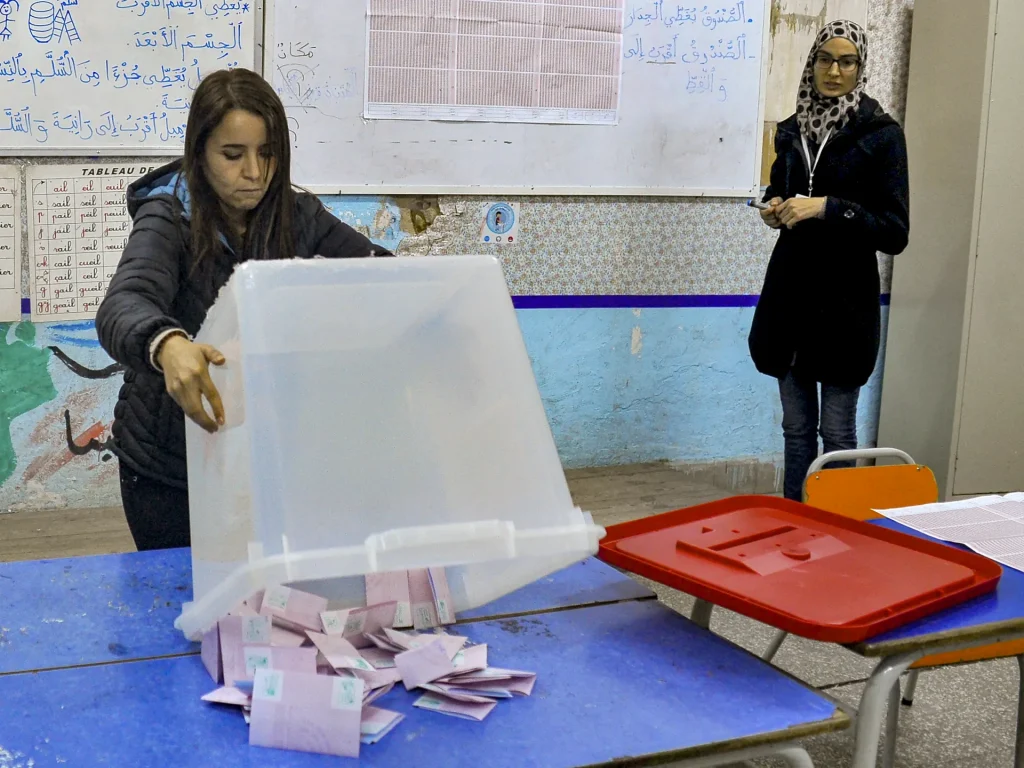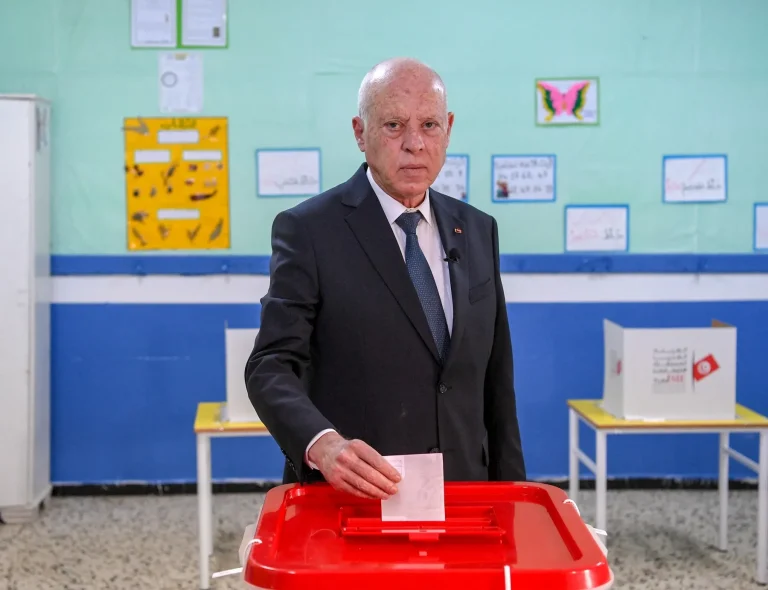Tunisia heads to the polls on Sunday for a presidential election in which incumbent Kais Saied is expected to win comfortably, facing little opposition as many prominent critics, including a key contender, are imprisoned.
This election comes three years after Saied’s sweeping consolidation of power, marking what some see as the end of Tunisia’s democratic experiment. The North African country was once lauded as the birthplace of the Arab Spring uprisings against dictatorship.
Polling stations are set to open at 8:00 am local time (0700 GMT) and close by 6:00 pm (1700 GMT), with preliminary results anticipated by Wednesday. However, they may be announced earlier, according to Tunisia’s electoral board, ISIE.
The election campaign has been notably subdued, with no rallies or public debates, and the majority of campaign posters in cities across the country feature Saied. Many voters express a sense of resignation, with little hope for meaningful change in a nation mired in economic hardship.

Since his rise to power in a 2019 landslide victory, the 66-year-old president has rewritten the constitution and led a crackdown on dissent, jailing several opposition figures. Among the detained is Rached Ghannouchi, leader of the Islamist-inspired Ennahdha party, and Abir Moussi, head of the Free Destourian Party, both of whom represent major political forces in post-revolution Tunisia.
Despite ISIE’s expectations of nearly 9.7 million voters, enthusiasm is low. The International Crisis Group (ICG) noted that Saied’s nationalist rhetoric and Tunisia’s economic struggles have dampened public interest in the election. Many fear that a new mandate for Saied could exacerbate the country’s socio-economic troubles and push it further towards authoritarianism.
Saied faces minimal competition after ISIE disqualified 14 candidates on technical grounds. His remaining challengers include former lawmaker Zouhair Maghzaoui, who supports Saied’s 2021 power grab, and businessman Ayachi Zammel, who is currently imprisoned on charges of forging endorsements for his candidacy.
In a speech on Thursday, Saied urged Tunisians to vote in large numbers, framing the election as part of a broader reconstruction effort. He claimed to be fighting a “long war against conspiratorial forces linked to foreign circles, accusing them of undermining public services and development projects.
While Saied retains significant support among working-class Tunisians, critics say he has failed to address the deepening economic crisis. Many citizens, burdened by rising inflation and unemployment, remain disillusioned with the political process.


